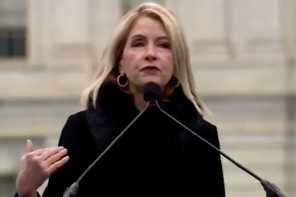At first glance, the subject of pastors who have lost their faith (or who never had it in the first place) seems titillating. Talk about living a lie! It also makes a nice talking point for “new atheists.” If ministers can’t even believe what they preach, how can anyone else have faith?
I haven’t had time to do more than glance at Daniel Dennett and Linda La Scola’s study of five non-believing clergy, (found via Jason Boyett) but it seems like they’re not interested in making that kind of hay. Rather, according to their conclusion, they’re more interested in helping people live openly and honestly:
Are they, in fact, in a good position to lead their congregations towards their own understandings, or are they condemned by their own commitments—to parishioners, their families, their colleagues—to perpetuate the double standards of sincerity that they have crafted so unwittingly over the years? We all find ourselves committed to little white lies, half-truths and convenient forgettings, knowing tacitly which topics not to raise with which of our loved ones and friends. But these pastors—and who knows how many others—are caught in a larger web of diplomatic, tactical, and, finally, ethical concealment. In no other profession, surely, is one so isolated from one’s fellow human beings, so cut off from the fresh air of candor, never knowing the relief of getting things off one’s chest.
That’s overstating it a bit. Most congregations would have a difficult time with a pastor who said flatly “I don’t believe in God.” But at the same time, most Christians understand that doubt is a part of faith, and that some wrestle with the questions more than others. Presented with an honest struggle, most congregants would be sympathetic, depending on circumstance and social location. All of this is of course just my informed opinion, hard data being mighty scarce, as Dennett and LaScola are the first to admit.
For me, a pastor who can’t assent to an intellectual proposition is less of a concern than someone who indulges in the atheism-in-practice of the marketplace or the battlefield or the hospital. To put it another way, I’d have much less of a problem with a colleague who said “I can’t believe anymore” than somebody who thought – and acted – as though God had nothing to say about, and no more power than, the way we use our money or deploy troops or treat cancer. Even if all they can muster is the assertion that the concept of God can bring people out from bondage to shallow consumerism or unthinking militarism or doctor’s orders, they’re worth their salt. But a pastor who thinks the people in his or her pews are sitting ducks at the mercy of the forces of the world? Get out of the way.
The other thing I wonder about is the standard that various people might apply to situations like this. Christians who believe that their pastors ought to have no doubts misunderstand the faith, and the nature of the church. Jesus came to seek out and save the lost, not demand perfection. The church – his body – is built to hold within itself the weakness of the world with grace and patience. Of course it should be able to contain leaders who struggle, provided they’re not taking advantage of their congregants.
Likewise, pastors who put orthodox dogma over hope and mystery do themselves – and God – no favors. God’s love goes wherever it wants, and to whomever it wants. That we cannot place that in some scheme or framework of understanding is not a strike against it, but a sign that we are taking it seriously.
And atheists who are tempted to think that pastors without belief demonstrate the faults of faith are misguided. That these pastors could even contemplate staying with the church indicates that there is more to the life of faith than simple propositionalism. The proof in the pudding, as it were, is not intellectual belief, nor blind obedience to faith, but the practice of the community. There is of course plenty of ammunition to be found on that score, since communities of faith can and do fail routinely to live up to their ideals. But the point is that that fodder is not to be found here. Non-believers would do well to wonder what it is about churches that they would draw in and keep leaders who cannot agree with their ideological bedrock.




